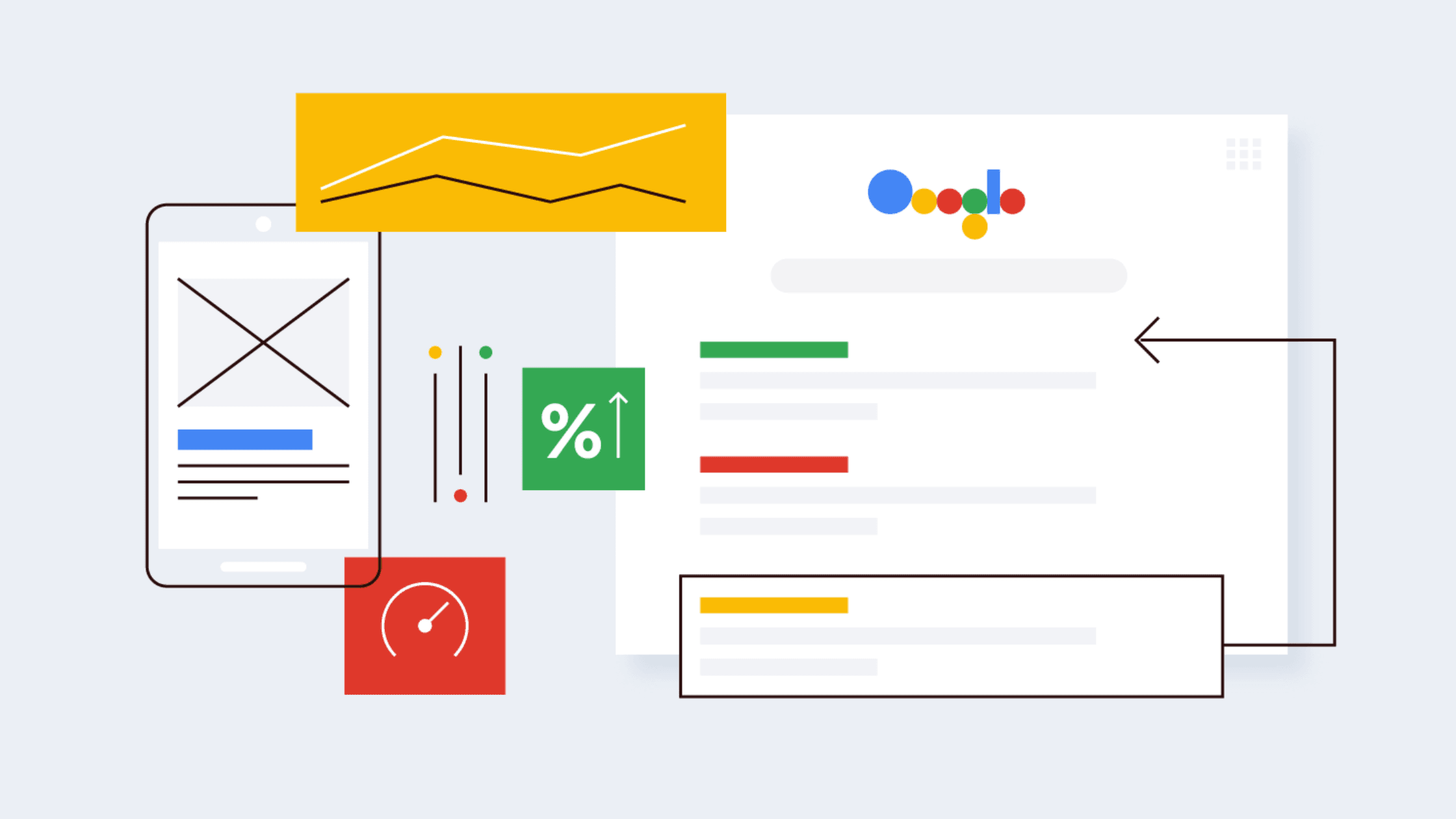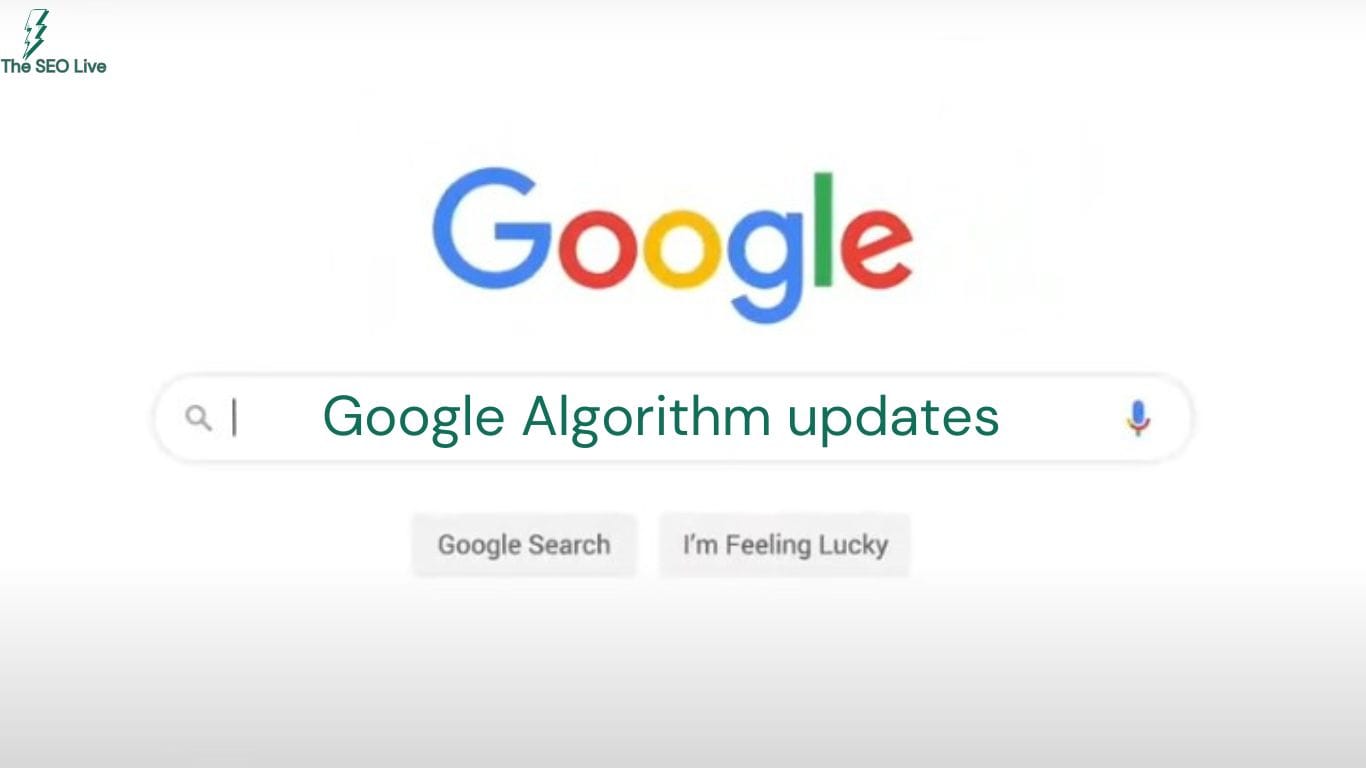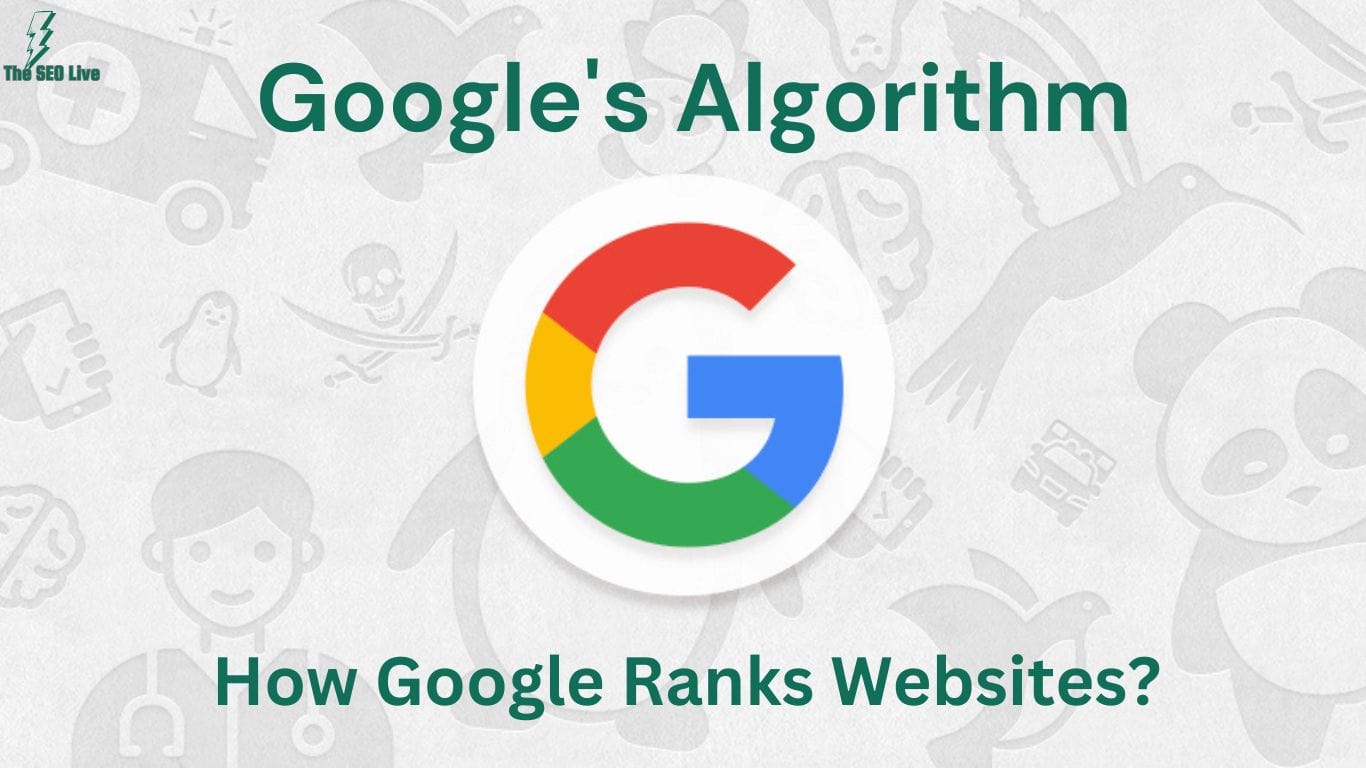Mastering Google’s Algorithm | How to Rank #1 on Google
This guide will explain all the factors a search engine follows to rank a web page, specially google algorithm. That’s because of half of the 4.9 billion internet users use google. So let’s start!!

What Is Search Engine?
A search engine algorithm is a complex system designed to provide information against the provided “keyword” by a searcher. The search engine algorithm collect the relevent data from world wide web according to the serch query.
Now what SEOs do is, they optimize web content to rank their website pages on the search results. The Search engine you’re probably thinking of is Google. But there are dozens of serach engines you can optimize your content for.
For example, youtube SEO is the process to getting traffic to your videos in Youtube’s search result.
Another example, Amazon SEO where you optimize your product page to get free organic traffic.
Last but not least, the Google SEO, the process to optimize your website to rank on goolge and drive more traffic to your web pages.
So, the search engines use the sophisticated algorithms and technology to return the best results to any given query. However, nobody knows how these algorithm works but we have clues, particularly for google. Following these we can make the optimization.
How Google algorithm Works?

Google’s search algorithm designed to provide relevant search results in return of searcher’s query. To understand the whole process, you need learn three main elements. Crawling, Indexing and Ranking.
Crawling
To actually attain information google uses Crawlers also known as “spiders” or “bots”. They gathered the publicalyavailable data from all over the web.
These spiders then goes from one page to another and index the content of each page, including text, images, and videos.
Indexing
The list of information gathered by the “spiders” is stored in a massive database called an google index.
This is the continous process that allows them to build a massive index of information.
Ranking
This is the most important part of this process to understand as an SEO professional. When you enter a query on google search, the search engine’s algorithm analyzes your query and matches it to relevant pages in the index.
Ranking algorithms consider various factors to determine the best results. Here are some of known ranking signals.
- Relevance
- Domain Authority
- User Experience
- Backlinks
- Keyword Optimization
- Updated Content
- Content Quality, Structure and Lenght
- Page Speed
- Meta Description
- Core Web Vitals
- Technical SEO
- Site Structure
- Mobile Optimization
How Google Ranks Websites?
Google algorithm prioritizes websites that deliver the most relevant, high-quality, and trustworthy content to users.
Here are some key factors it considers:
Keywords & Relevance: While keywords remain important, Google now focuses on semantic understanding and user intent. Ensure your content addresses the search query’s core meaning, not just stuffing it with keywords.
Content Quality & Depth: In-depth, informative content that establishes your expertise is king. Provide valuable insights, address user pain points and offer solutions. Aim for clear, concise writing, proper grammar and engaging content structure.
Entity Recognition & Relationships: Google algorithm understands the relationships between entities (people, places, things) within your content. Link relevant entities to trustworthy sources to build a strong knowledge base.
Mobile-Friendliness: With mobile surpassing desktop usage, a website that displays flawlessly on all devices is crucial. Google prioritizes mobile-optimized websites in search results.
Page Speed & User Experience: A fast-loading website provides a smooth user experience. Google algorithm considers page speed as a ranking factor. Optimize images, code, and server performance for optimal speed.
Backlinks & Website Authority: High-quality backlinks from reputable websites are like votes of trust for your content. Earning backlinks demonstrates the value and trustworthiness of your website in the eyes of Google.
Click-through rate: CTR is also an important ranking factor. Google considers the number of users who click on the website link, when the website shows up in their search result.
Bounce rate: This measures the number of visitors that arrive then click the back button. Google algorithm considers it as the content is not helpful or relevant to the query.
Dwell time: This measures how long a visitor stays on a page.

Best Practices for Successful SEO Implementation Accprding To Google Algorithm
Now that you understand the core principles, here are actionable steps to optimize your content,
Keyword Research
Keyword research is the process of Identifying relevant keywords with high search volume and low competition using tools like Google Keyword Planner. However, prioritize user intent over keyword density.
On-Page Optimization
On-page SEO is the most crucial technique of SEO strategy. Following this you optimize your website’s title tags, meta descriptions, header tags, and image alt text with relevant keywords, ensuring they accurately reflect your content.
Content Structure
Structurize your content strategy that caters to your target audience’s needs and interests. Create informative blog posts, helpful guides, and engaging videos that address their search queries and pain points.
Technical SEO
Ensure your website’s technical foundation is sound. This includes a clean code structure, proper internal linking, and a mobile-responsive design. Utilize tools like Google Search Console to identify and address technical SEO issues.
Link Building
Focus on earning high-quality backlinks from relevant and authoritative websites in your niche. Guest blogging, creating link-worthy content, and online community engagement can help with organic backlink acquisition.
Content Freshness
Regularly update your website with fresh, valuable content. Google algorithm favors websites that demonstrate ongoing activity and commitment to providing users with the latest information.
Analytics & Measurement
Track your website’s performance using Google Analytics. Monitor key metrics like organic traffic, keyword rankings, and user engagement to understand what’s working and where you can improve.
Remember: SEO is a marathon, not a sprint. By consistently implementing these best practices and creating high-quality content, you’ll gradually climb the search engine rankings ladder and attract a wider audience.
Stay updated on Google’s algorithm updates and adapt your strategy accordingly.

Google Algorithm Updates
Google’s algorithm is constantly evolving with numerous updates throughout the year. These updates aim to improve search results and provide the most relevant information to users.
While Google doesn’t disclose the specifics of every update, some of the major ones include:
Core Updates
Broad Algorithm Changes: These Google Algorithm updates affect a wide range of websites and can significantly impact search rankings.
Focus: Improved content quality, user experience, and relevance.
Impact: Websites may experience significant traffic fluctuations.
Specific Updates
Product Reviews Update: This update aims to improve the ranking of high-quality product reviews.
Page Experience Update: This update considers factors like page load speed, mobile-friendliness, and secure browsing.
Link Spam Updates: These updates target websites that engage in manipulative link-building practices.
How to Stay Updated
Google Search Central: This official Google resource provides information on algorithm updates and best practices.
SEO Tools: Tools like Google Search Console and Moz can help you track website performance and identify potential issues.
SEO Forums and Communities: SEO forums are the best place to engage with other SEO professionals to stay informed about the latest trends and updates.
Bonus Tip
Focus on building a strong brand identity and expertise within your niche. Google algorithm increasingly considers user trust and brand reputation when ranking websites.
Embrace the SEO Journey
By understanding Google’s algorithm and implementing these SEO best practices, you’ll be well on your way to achieving top search engine rankings and attracting a loyal audience to your website. Remember, SEO is a continuous process of learning, adaptation and experimentation. Embrace the journey, keep creating valuable content and watch your website climb the search results ladder!
FAQs
What is a Google Algorithm Update?
Google regularly updates its algorithm to improve search results. These updates can significantly impact website rankings, and it’s crucial for businesses to stay informed about the latest changes.
How Often Does Google Update Its Algorithm?
Google updates its algorithm frequently, sometimes multiple times per year. These updates can be major or minor, and they can affect specific niches or the entire search engine.
How Can I Improve My Website’s Ranking on Google?
To improve your website’s ranking, consider the following:
Keyword Research: Identify relevant keywords and incorporate them into your content.
High-Quality Content: Create valuable, informative, and engaging content.
Optimize Your Website: Ensure your website is fast, mobile-friendly, and easy to navigate.
Build Backlinks: Acquire links from reputable websites.
Monitor Your Performance: Use tools like Google Analytics and Search Console to track your website’s performance.
What are Core Web Vitals?
Core Web Vitals are a set of metrics that measure user experience on the web. Google uses these metrics as a ranking factor, so optimizing your website for Core Web Vitals can improve your search rankings.
Can I Manipulate Google’s Algorithm?
While there are some unethical tactics to try to manipulate Google’s algorithm, it’s important to focus on long-term, sustainable strategies. Google penalizes websites that engage in black-hat SEO practices.

